Who is involved ?
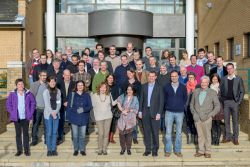
Participants
In addition to the work package leaders and the participant representatives, AGFORWARD involves about 112 named researchers from 17 European countries and two international organisations.
Coordination
The project is co-ordinated by Dr Paul Burgess, Reader in Crop Ecology and Management at Cranfield University. Dr Burgess has a 23 year experience in tree and crop agronomy and economics, 19 years in temperate agroforestry research including evaluation of cultural services. Dr Burgess is also the leader of Work-package 10.
The Co-ordinator chairs an Executive Committee comprising the nine work-package leader and Dr Dupraz from INRA.
Work-package leaders
- WP1: Dr Michael den Herder, European Forest Institute
- WP2: Dr Gerardo Moreno, University of Extremadura, Spain
- WP3: Dr Anastasia Pantera, TEI Stereas Elladas, Greece
- WP4: Dr Jaconette Mirck, Brandenburg University of Technology Cottbus-Senftenberg, Germany
- WP5: John Hermansen, Aarhus University, Denmark
- WP6: Dr Joao Palma, Lisbon University, Portugal
- WP7: Dr Tobias Plieninger, University of Copenhagen, Denmark
- WP8: Prof. M.R. Mosquera, University of Santiago de Compostela, Spain
- WP9: Fabien Liagre, AGROOF, France
Other participants
AGFORWARD is using a participatory research approach to identify, develop and field-test agroforestry innovations within work-packages 2, 3, 4 and 5, i.e. rather than working FOR farmers, we are seeking to work WITH farmers.
Partners
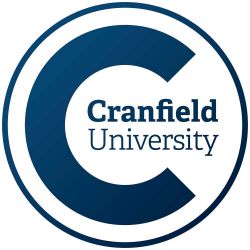
Cranfield University is an exclusively postgraduate university situated about one hour north of London. It is a global leader for education and transformational research in technology and management. It also hosts the Farm Woodland Forum.
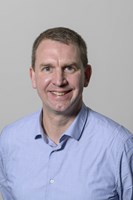
Paul is the Reader Crop Ecology and Management within the School of Energy, Environment and Agrifood at Cranfield University. He is responsible for the overall management of the AGFORWARD project. He has previously managed research focused on the silvoarable network sites in the UK, and has led a work-package focused on the bio-economic modelling of European silvoarable systems.
“I am excited that by the opportunity that we have in AGFORWARD to promote the integration of trees in European farming systems to provide both financial and environmental benefits”.
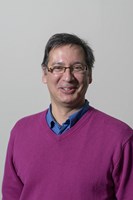
Anil is Senior Lecturer in Land Use Systems within the Department of Environmental Science and Technology at Cranfield University. He completed his PhD on the “Bio-economic evaluation of agroforestry systems for Europe”. He will be closely involved in the use of models to describe the technical and economic evaluation of agroforestry practices at a field- and farm-scale.
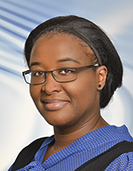
Dr Kenisha Garnett is the Project Administrator for AGFORWARD. She has a PhD in Environmental Management Policy, an MA in Social Science Research Methods, and an MSc in Environmental Engineering and Project Management

Jane is Professor of Soil Erosion and Conservation within the Department of Environmental Science and Technology at Cranfield University.
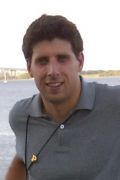
Silvestre is the Research Fellow in Agroforestry and Bio-economic Modelling at Cranfield working on the AGFORWARD project. Silvestre received his PhD in Agricultural and Natural Resources Economics from the Technical University of Madrid. He then had a Post-doctoral position at Purdue University in the USA where he conducted research on the drivers of adoption of conservation practices under a changing climate context. He started work at Cranfield University in November 2015.

Matt Upson worked as a Research Fellow in Agroforestry at Cranfield from October 2014 to November 2015. He was involved in leading the initial stakeholder work focused on parklands and grazed orchards in the UK.
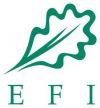
European Forest Institute - EFI - is an international organization established by European States and conducts research and provides policy support on issues related to forests. EFI has currently app. 130 member organizations (both research organizations and end-users of research) in Europe and beyond. Main research areas are sustainability and climate change, policy and governance, and foresight and information.
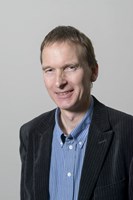
Dr. Marcus Lindner is the Head of Programme ‘Sustainability and Climate Change’ at EFI. He has 20 years experience of research on climate change impacts and the development of response strategies in forest management, forest sector sustainability and goods and services assessments from European forests. He has lead and contributed to many European projects. He coordinated the development of the Tool for Sustainability Impact Assessment (ToSIA) in EFORWOOD, leads in MOTIVE the Dissemination and Stakeholder engagement and in VOLANTE the analysis of pathways towards desired land use visions.
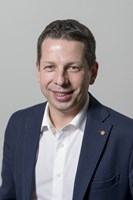
Dr. Robert Mavsar is head of EFIMED and senior researcher in forest economics. With a degree in forestry and a PhD in economics he has more than 10 years of research experience mainly on environmental and forest policy and economics. He coordinated (STAR TREE, FORVALUE, MASIFF) and worked in (FIRE PAARADOX, EXIOPOL, CREEA, NEWFOREX) several EU funded research projects.
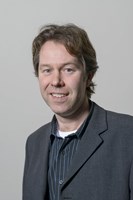
Dr. Michael den Herder is researcher at EFI with recent projects related to bio-energy, biodiversity and ecological research (VOLANTE, Geoland2, BioE-BioD). Currently Michael is working on land use and land use change issues and how remote sensing can contribute in assessing forest diversity and naturalness.
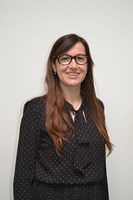
Mercedes Rois has been working in the past on forest biodiversity indicators, in particular on silvopastoral systems, and also on application of sewage sludge as fertilizer in silvopastoral systems. After a few years working on project administration and management she returned back to research, working mainly on the policies and factors framing agroforestry in Europe within the AGFORWARD project.

As network leader for animal and plant supply chains, ACTA federates 15 technical agricultural institutes (ITA). The ITAs represent the applied research level of the French agricultural research and development system. ACTA and the ITAs were created and are still directed by farmers. In an effort to balance the consortium, in determining the evaluation of European projects, the Agricultural Technical Institutes may adopt the following strategy if needed: when several ITA wish to join a consortium, ACTA appears as the only partner in the project while the others ITA as third parties. For AGFORWARD project, ACTA and the ITA’s (IDELE : French Livestock Institute, IDF : Institute for the forestry development) have adopted this strategy.
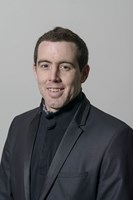
Mr. Adrien Guichaoua, European Project Manager, member of the General Assembly
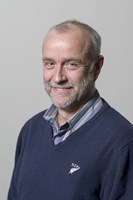
Eric Pottier: Head of fodder and nursing herd department
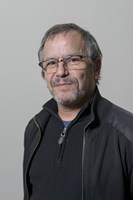
Jean Christophe Moreau : Head of fodder and climate change project
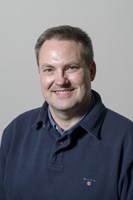
Philippe Van Lerberghe is a research engineer at the Institute for the Forestry Development. His mission focuses on assessing the technico-economical interest of reforestation works and developping new methods of wood covers and new planning tools for the natural environment.
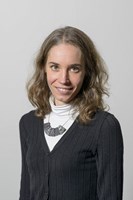
Hélène Gross is project manager in charge of biodiversity for ACTA. She follows up and officiates projects for which biodiversity interfaces with agriculture and leads a networks of actors in that perspective.
Educated as an agriculture engineer, she completed her interdisciplinary PhD in agroecology and management sciences, on the sylvopasture management of outstanding endangered spaces.

The Crop Production Department at the University of Santiago de Compostela (USC) has 50 staff, and “Agroforestry Systems” is one of eight research groups. The agroforestry group has over 40 years experience in participatory silvopastoral system research with a focus on productivity (nutrition, livestock production), C sequestration, nutrient cycling, culture and biodiversity (autochthonous animal breeds, flora biodiversity). Project members have worked for national and regional authorities in the development of agri-environment measures. Staff edited books on “Silvopastoralism and Sustainable Land Management” in 2004 (CAB international) and “Agroforestry in Europe” (Springer), and wrote a report on agroforestry biodiversity indicators for EFI and the European Environment Agency. The team have published 25 JCR papers in the last 4 years and two reviews on agroforestry systems in Europe and C sequestration in “Advances in Agroforestry”. Staff are currently working on agroforestry systems with autochthonous breeds of horses, cattle and pork with local associations and companies.
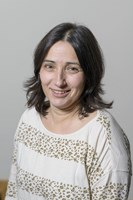
Prof Rosa Mosquera-Losada is Head of the ‘Crop Production’ Department, with a research focus on grasslands and forestry. Her research projects include agroforestry demonstration plots and extension teaching with commercial companies. She is responsible for the Spanish agroforestry group of the Spanish Forest Society. She is the secretary of EURAF and since 2006 she has been a member of the scientific committee in the European Grassland Federation. She is an associate editor of the Agroforestry Systems JCR journal. She is presently heading the National project AGROFOR. She has been working in research and policy with researchers and policy makers of different parts of Europe and the world.
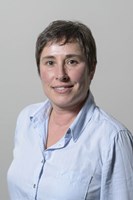
Pilar González Hernández is an animal scientist studying rangeland production systems. She has published on antinutritional compounds of woody vegetation in silvopastoral systems, and stocking rates.
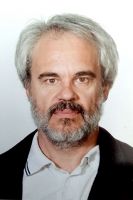
Dr Jose Javier Santiago Freijanes is a Researcher at the University of Santiago de Compostela. His expertise is in mapping and programming.
Technologiko Ekpedeftiko Idrima Stereas Elladas

The Technological Educational Institute (Τ.Ε.Ι.) of Sterea Ellada, is a higher education institute in Greece comprising of fifteen departments, more than 500 research, teaching and administration staff, and more than 10,000 students. The Department of Forestry and Natural Environment Management is located in the city of Karpenissi, prefecture of Evritania, 70 km from the city of Lamia.
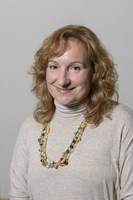
Prof Dr Anastasia Pantera, agroforestry, silvopastoral systems, forest soils, forest biology, silviculture.
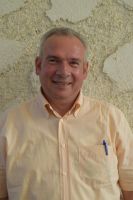
Dr Kostantinos Mantzanas completed a Ph.D. at the School of Forestry and Natural Environment at Aristotle University of Thessaloniki (A.U.Th). His thesis title was “Biomass characteristics of mountainous areas affected by silvopastoral treatments”. His academic and research interests include: structure and function of agroforestry systems, ecology and development of rangeland ecosystems, survey and management of agroforestry systems, and traditional agroforestry systems. Konstantinos participated in several European and national research projects, and is the National Delegate of EURAF – European Agroforestry Federation (2012-now), the General Secretary of HAN - Hellenic Agroforestry Network (2012-now), also member of the Geotechnical Chamber of Greece, the Hellenic Range and Pasture Society (General Secretary 2007-2010) and the Hellenic Forestry Society.
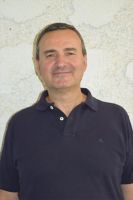
Dr Andreas Papadopoulos is a professor at the Department of Forestry and Natural Environment Management, Technological and Educational Institute of Sterea Ellada, Greece. Andreasreceived an Honours degree in Forestry and Environmental Science at Aristotle University of Thessaloniki, Greece, and aPhD in Dendroclimatology at the University of Aix-Marseille III, France. He has coordinated or participated in more than 15 research projects. His research has been published in peer-reviewed international and national scientific journals as well as international and national conferences and he has produced several book chapters. His research interests include: forest ecology, agroforestry and dendroecology.
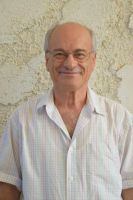
Dr. Vasilios P. Papanastasis is an emeritus professor of the Aristotle University of Thessaloniki (AUTh). He studied forestry in Greece and did postgraduate studies in a range of science subjects (M.Sc., Ph.D.) at the University of California, Berkeley, U.S.A. He worked as a researcher in the Forest Research Institute of Thessaloniki and as a professor at the School of Forestry and Natural Environment of AUTh, where he taught rangeland ecology and agroforestry. He carried out several research projects, national and international and participated in national and international conferences. He has authored 5 books and about 400 scientific papers. He is member of several national and international scientific societies.

Ranked the number one agricultural institute in Europe and number two in the world, INRA carries out mission-oriented research for high-quality and healthy foods, competitive and sustainable agriculture and a preserved and valorised environment. INRA will involve 5 research teams located in 3 French sites : Montpellier (INRA-SYSTEM and INRA-DIASCOPE), Rennes (INRA-SAS and INRA-SAD) and Lusignan (INRA-FERLUS) in the west atlantic zone. INRA-SYSTEM is the leading research team in France on agroforestry systems, with more than 25 years of uninterrupted research and manages two major experimental agroforestry sites at Restinclières and Vézénobres. These sites are probably the only mature agroforestry sites continuously monitored since their plantation in Europe.
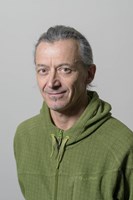
Dr Christian Dupraz, INRA UMR SYSTEM, agroforestry, modelling, climate change, reference experiments. Christian Dupraz is a senior researcher in agroforestry, Associated Editor of “Agroforestry Systems”, co-ordinator of the first European FP5 project on agroforestry (SAFE, Silvoarable Agroforestry for Europe, 2001-2005), author of a reference handbook on agroforestry.
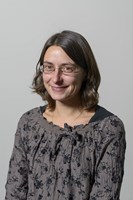
Dr Sandra Novak, INRA-FERLUS, mixed crop-dairy systems, forage crops, agronomical and zootechnical experimentation, agri-environmental assessment.
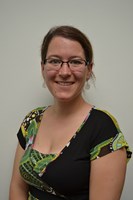
Dr Marie Gosme, INRA UMR SYSTEM, agroforestry, modelling, climate change. Marie Gosme started her career on spatio-temporal modelling of disease epidemics and pest population dynamics. She is now working on the interactions between trees and crops in agroforestry systems in the context of climate change.
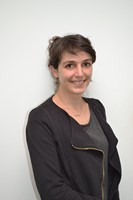
Dr Delphine Mézière, INRA - UMR SYSTEM, is an agronomist specialized in weed management and cropping system design. She is also in charge of the coordination of a French research and extension network, created to share expertise, databases, and experimental sites on agroforestry innovations.
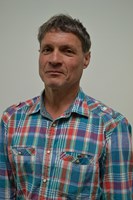
Dr Jean-Claude Emile, INRA-FERLUS, mixed crop-dairy systems, yield and quality of grasslands and forages, innovative forage and dairy systems, agronomical and zootechnical experimentation.
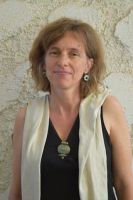
Dr Dominque Desclaux
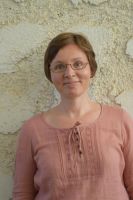
Dr Claudine Thenail
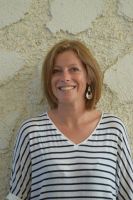
Dr Stephanie Aviron
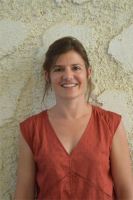
Dr Valerie Viaud
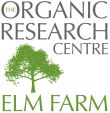
The Progressive Farming Trust Ltd trading as Organic Research Centre is the UK’s leading independent research, development institution for organic agriculture and agro-ecology. It aims to develop and support sustainable land-use, agriculture and food systems, primarily within local economies, which build on organic principles to ensure the health and well-being of soil, plant, animal, man and his environment. ORC's multi-disciplinary and collaborative research covers plant breeding, crop production, bio-diversity and eco-systems services, agroforestry, livestock systems sustainability assessment, climate change, and socio-economics and policy, in many fields using participatory methods and with a strong focus on knowledge dissemination. ORC has been involved with agroforestry research for over 10 years, evaluating an agroforestry approach to balancing productivity with protection of the environment as a truly multi-functional land use. Research has focused on the Wakelyns Agroforestry site in Suffolk, as well as working with a network of agroforestry practitioners across England
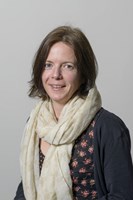
Dr Jo Smith (Senior Agroecology Researcher) focuses on temperate agroforestry systems including silvoarable and silvopastoral systems. She is a WP leader for ICOPP (ERA-NET project), WP leader for TWECOM, deputy WP leader for Co-FREE (FP7) and task leader for SOLID (FP7).
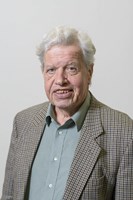
Prof. Martin Wolfe (Principal Scientific Advisor) is emeritus professor of plant pathology at ETH Zurich with longstanding involvement in research on bio-diversity and eco-agroforestry.
Brandenburg University of Technology Cottbus

The Department of Soil Protection and Recultivation is part of the Faculty of Environmental Sciences and Process Engineering of the Brandenburg University of Technology Cottbus. Ongoing research activities comprise various aspects of land reclamation, initial ecosystem development and new types of land use systems. The scientific work of the 'Multifunctional land use' research team, which is part of this project, aims on agroforestry systems including nutrient cycles, management, biodiversity, microclimate, bioenergy and bioeconomy as well as environmental impact assessment. The research team builds on more than 17 years of agroforestry research on different types of long-term field trials in cooperation with local farmers and other stakeholders and is experienced in the management of national and international R&D project.
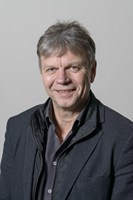
Prof. Dr Dirk Freese, Agriculture Engineer, Agroforestry, agriculture, soil chemistry and land reclamation,
including nutrient cycles and modeling aspects
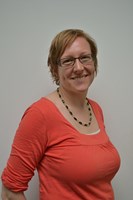
Dr. Jaconette Mirck, has more than ten years of international, academic and industrial experience in bioenergy and phytoremediation using short rotation coppice systems.
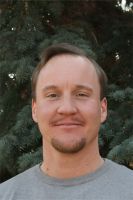
Mr Michael Kanzler has a MSc degree in forestry with a focus on short rotation coppice and has been working on alley cropping systems at BTU University in Cottbus since 2010.

The University of Extremadura (UNEX) was funded in 1973. The Forestry school opened in 1999 offers BSc level courses on Forestry engineering. In the research team there are soil scientists, ecologists, forestry engineers, biologists, economists and social scientists. They conduct multidisciplinary research on natural resource management issues and on various biophysical and social aspects of the Mediterranean forest and agroforestry systems, mostly focused on functioning, productivity and sustainability of the Mediterranean agro-silvo-pastoral systems (Iberian dehesa). They have participated in two previous EU FP projects, SAFE and BioBio.
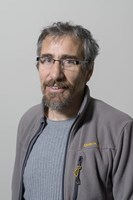
Gerardo Moreno Marcos PhD in Biology, teaches Soil Science and Forest Planning at Forestry School, University of Extremadura. He is specialized in the functioning of forest and agroforestry systems with a focus on functioning, management and persistence of Iberian dehesas.
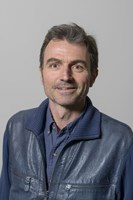
Manuel Bertomeu García PhD is a Forestry Engineer, teaches Forest Management. Long research and development experience on timber-based agroforestry.
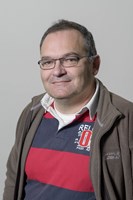
Juan Carlos Gimenez. Forestry Engineer. Expert on modeling hydrological processes and GIS.
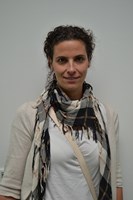
Paula Gaspar PhD in Veterinary Science is a professor of Animal Production in the School of Agriculture of the University of Extremadura. Her research focuses in economic and technical management of agroforestry systems and extensive livestock farming systems.

Instituto Superior de Agronomia (ISA) is one of the faculties of the Universidade Técnica da Lisboa (Technical University of Lisbon). Our core business is Higher Education, Research & Development and Technology Transfer mainly in the scientific fields of Agriculture, Forestry and Natural Resources, Food Science and Engineering, Animal Production, Environmental Engineering, Biology and Landscape Architecture. Present scientific work includes 108 Research & Development projects (17 international) and others involving Technology Transfer. We are leader partner in 2 international projects funded by the EU and in 48 national projects. Most of our partners in international projects belong to the EU but we participate in several research networks with other countries, namely Australia, New Zealand, USA, Brazil and Chile. Our experience in Research & Development projects with international teams has more than 20 years and during this period we were project leader of several large and very large teams
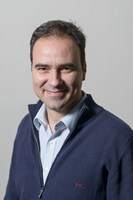
Dr João HN Palma, PhD in Production Ecology and Resource Conservation with expertise in process
based modeling, GIS, Environmental modeling, programming in different languages, including web .
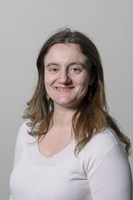
Dr Joana A Paulo, PhD in Forestry, works in modeling and forest management, with enfaces in Portuguese ‘montado’ stands (cork and tree growth).
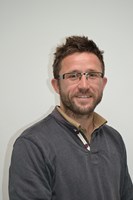
Josep Crous-Duran has a Master’s Degree in Environmental Studies and experience modelling economic, social and environmental impacts caused by the forestry industry. For this project, Josep will focus on modelling the Ecosystem Services offered by the Agroforestry systems.
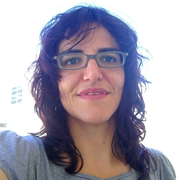
Tânia Oliveira has a PhD in Forest Engineering and Natural Resources and has experties in empirical and process based forest growth modelling and GIS.
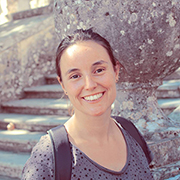
Ana Tomás, Master in Forest Engineering and Natural Resources has expertise in project management and is a software developer interested in different programming languages.
University of Copenhagen

With over 37,000 students and more than 7,000 employees, the University of Copenhagen is the largest institution of research and education in Denmark. UCPH is ranked as the 7th best European University on the Leiden Ranking list (2011, based on no. publications). The EU Office at the University of Copenhagen has extensive experience in managing both FP6 and FP7 projects. The Department of Geosciences and Natural Resource Management (IGN) at the UCPH was recently founded in 2013 by the merging of the Danish national centre Forest & Landscape and the Department of Geography & Geology. The department is part of “Geocenter Denmark” and “The National Center for Forest, Landscape and Planning”. IGN’s activities include research and development, education, public-sector service, and outreach as well as international development and environ-mental assistance in the fields of geology, geography and geo-informatics, forest, nature and bio-mass, and landscape architecture and planning.
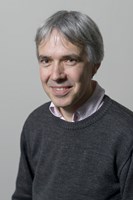
Dr. Tobias Plieninger will be Associate Professor in Countryside Planning at the Department of Geosciences and Natural Resource Management as of September 2013. He holds a PhD in forest and environmental sciences and a habilitation in landscape ecology. His research specialises on analysis of cultural landscape change, ecosystem services assessment, agroforestry systems, and humanenvironment relations.
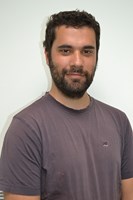
Mario Torralba is a PhD fellow in the University of Copenhagen. He has a Master Degree in Ecology from the Universidad Autónoma de Madrid. He focusses on ecosystem services assessment in agroforestry systems.
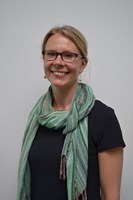
Dr Nora Fagerholm is postdoctoral researcher holding a PhD in geography. Her expertise lies in integrated landscape planning and participatory GIS with a focus on mapping ecosystem services from the stakeholders’ perspective
Agroscope

Agroscope FDEA-ART is the Swiss national competence centre for agro-ecology. Agroscope conducts research into environmentally compatible and economically competitive farming by combining ecology, economics and agricultural engineering. Expertise at Agroscope is in agronomy, agricultural technology and economics, plant breeding and genetics, molecular biology, biodiversity and landscape development, and eco-controlling. FDEA-ART evaluates agricultural policies with respect to their environmental and economic impact and is responsible for agri-environmental indicator development, application and communication with a strong focus on biodiversity
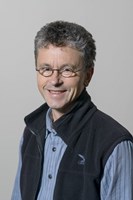
Dr. Felix Herzog, is an agronomist and landscape ecologist. He leads the research group on Agricultural
Landscapes and Biodiversity at FDEA-ART (15 staff) and co-ordinated the FP7 BIOBIO project
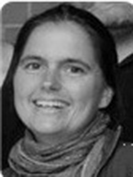
Sonja Kay has a diploma degree in forestry with the focus on landscape management and GIS and a Master`s degree in energy management. She will do a PhD on ecosystem services of agroforestry at the landscape scale.

Werkgroep voor Rechtvaardige en Verantwoorde Landbouw (i.e. the Working Group for Just and Responsible Agriculture) Wervel vzw is a non-governmental organisation based in Brussels, Belgium. Wervel aims to promote agriculture that increases economic, ecological, social and cultural value. By the use of networks, campaigns and publications, Wervel moves consumers, farmers and organisations to build such agriculture systems. Wervel has worked on agroforestry on a Flemish level since 2002 and has successfully advocated the implementation of the EU support measure in Flanders. Wervel has promoted agroforestry to diverse groups of stakeholders, including but not limited to the press, farmers, local governments, and academic and educational institutions. At a European level, Wervel participated in policy advocacy initiatives on agroforestry and on European protein production
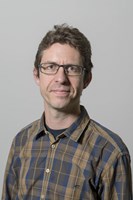
Jeroen Watté has a Master's degree in Land & Forest Management, and a Master's in Cultures and Development Studies (development anthropology) from the KULeuven. Jeroen has studied sustainable agriculture independently in India, Zimbabwe and has been working on sustainability issues since 2002, including work on agro-ecology and agroforestry, sustainable protein food chains, and issues of ecological debt. Since 2002 he has been promoting agroforestry, with a focus on communication and networking to mobilize relevant stakeholders, and policy makers.

The Department of Agroecology is part of the Faculty of Science and Technology at Aarhus University. It holds a scientific staff of 80 plus 70 PhD students covering most aspects of agricultural sciences, and is organised in six research groups, one of which ‘Agricultural systems and Sustainability’ is part of this project. This group is leading with respect to issues related to agriculture and environment, production systems, organic food and farming and participatory approaches. The research group builds on more than 25 years of farming systems research combining participatory on-farm experiments in livestock and crop production with modelling of production, energy use and nutrient flows and studies of farmers’ production logics and decision making processes in relation to economic efficiency, environmental impact and marketing strategies
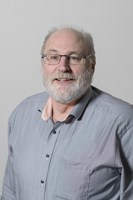
John E. Hermansen leads the ‘Agricultural systems and sustainability’ group. John’s scientific profile is within agriculture and environment, including life cycle assessment of foods, and organic livestock systems. John has experience in managing projects involving SME’s as well as international team of research partners and is currently WP leader in 2 EU funded project through FP 7 (Agrobiofilm and SOLID). Is presently heading the National project SUMMER and the ERA net project ICOPP that focus on the integration of livestock into land use.
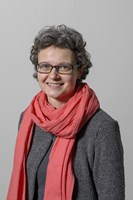
Anne Grete Kongsted focuses on effects of managerial, environmental and genetic factors on resource utilization, animal production, animal welfare and meat quality in free-range pig production systems, including systems with integrated pork and energy crop production.
Agri Food and Biosciences Institute

AFBI is a non-departmental public body which carries outresearch to underpin the agri-food industries in Northern Ireland. Most funding comes from the Department of Agriculture and Rural Development but it also works closely with the Northern Ireland Environment Agency, is a partner in many EU and other projects and is linked to Queens University of Belfast. In 1989 AFBI participated in the UK Agroforestry Research Forum’s UK National Silvopastoral experiment with a site on its research station at Loughgall, Co Armagh and an on-farm site. These sites are still available for research purposes. AFBI participated in the EU ALWAYS agroforestry project and in several national and internationally funded research projects. It has also been involved in technology transfer, promoting agroforestry through the local government advisory service and, through participation in an all-island agroforestry group, assisting in establishing demonstration sites in Ireland. The Institute (with almost 800 staff) embraces a wide range of scientific disciplines which can be drawn upon to support its agroforestry research and has a well-equipped field station with access to land, wide-spaced tree plantations and livestock. It has access to two excellent on-farm demonstration sites, one in Northern Ireland and one in Ireland and would hope that participation in the project would provide a knowledge-base through basic research on ecosystem services delivery from these and knowledge transfer to the wider farming and forestry sectors
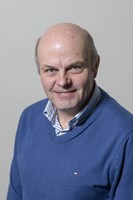
Professor Jim McAdam, Head, Crops Grassland and Ecology Branch. Responsible for field Stations, specialist in silvopastoral systems
Consiglio per la Ricerca e la Sperimentazione in Agricoltura

The Agricultural Research Council (CRA) is the largest national (Italy) research organization in agriculture. It operates under the supervision of the Ministry of Agriculture, with general scientific competence within the fields of agriculture, agroindustry, food, fishery and forestry. The CRA gathers together the experience of 28 Agricultural Research Institutes and their 54 peripheral operational units for a total of 82 offices throughout the nation. The distribution of the CRA offices throughout national territory allows it to widely extend its expertise and proficiency, and to closely operate in conjunction with central administrations, local and regional institutions, companies and various trade, industrial and legal associations.
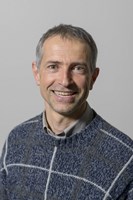
Dr. Adolfo Rosati (Senior Researcher), focus on agroforestry, ecophysiology, sustainability. Worked on a Regional project on Olive Agroforestry, funded by the Region of Umbria within measure 1.2.4 of the RDP.

The Louis Bolk Institute (LBI, Netherlands) is an independent scientific research institute offering advisory, research, and development services in the field of organic and sustainable agriculture, nutrition and health care. It operates as a not-for-profit foundation. Its strength lies in its ability to integrate different disciplines, bringing together a broad range of researchers including soil, plant and animal scientists as well as physicians. The Institute operates in the Netherlands and Europe and also has regional offices in Uganda and Ghana. The Institute’s Department of Animal production systems has a strong background in sustainable farming systems development and participatory approaches. Its expertise includes ecosystems services, sustainable soil management, agro-forestry, agro biodiversity, carbon sequestration in different farming systems and animal welfare. The department closely cooperates with other research institutes and universities and with farmers, for example the ‘Duinboeren foundation’ and poultry farmers network ‘Trees for chickens’. The institute is and has been involved in many EU projects: QLIF, Low Input Breeds, CO-FREE.
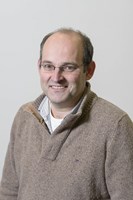
Dr Nick van Eekeren (LBI) Senior researcher on soil, plant and animal production-aspects of dairy farming. Coordinator the institute’s research on agro-biodiversity. PhD (2010) on grassland management, soil biota and ecosystem services in sandy soils. One of his current research themes is silvo-pastoral systems. He also coordinates several dairy farm networks.
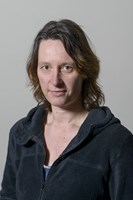
Monique Bestman MSc (LBI) Biologist and animal scientist involved in several Dutch and EU research, demonstration and advisory projects concerning animal welfare in laying hens and also projects about the development of multipurpose ‘plantations’ in poultry outdoor runs and climate neutral poultry farming
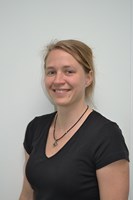
Boki Luske MSc Biology. Works on research programs about biodiversity in the rural landscape, ranging from natural pest control, bees and pollination, fodder trees and multifunctional land use. Method used is mostly a participitory approach, bringing science into farmers’ practice.
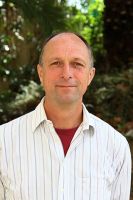
Mark Vonk is an advisor to the AGFORWARD project and leads on agriculture nature management for the regional farmers organization, Duinboeren (Dune farmers). Duinboeren is subcontractor for LBI and maintains contact with the fodder tree farmers and other fodder tree stakeholders in the region and manages the test sites. Mark has a BSc in Forest and Nature Management and together with his wife runs a small-scale organic farm where customers can harvest their own vegetables and fruits.

The Italian National research Council (CNR) is the largest public research institution in Italy. The mission is to promote innovation and competitiveness, the internationalization of the national research system, to provide technologies and solutions to emerging needs, to advice Government and other public bodies, and to contribute to the qualification of human resources. CNR is organised in 11 departments and 108 institutes across Italy. Three institutes will participate in the project. The Institute of Agro-environmental and Forest Biology (IBAF) focuses on the interaction between plant species and environment; the Institute for Biometeorology (IBIMET) with the main focus on evaluation of global changes impact on agriculture and forests, and the Institute for Animal Production System in Mediterranean Environment (ISPAAM) focuses on the ecophysiology and management of forage resources within silvopastoral systems
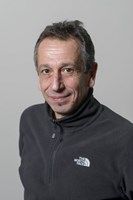
Andrea Pisanelli, rural sociologist, expertise on participative approach and stakeholder analysis
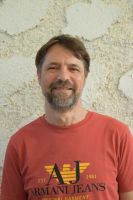
Dr Pierluigi Paris is a Researcher at the Istituto di Biologia AgroAmbientale e Forestale at Consiglio Nazionale delle Ricerche. He is a specialist in agroforestry with specific experience in field experimentation, plant ecology, rural development and extension of practices. Pierluigi is the National
Coordinator of the Italian Working Group on Agroforestry of SISEF (Italian
Sci. Society on Forest Ecology).
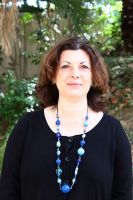
Francesca Camilli
Francesca works for Consiglio Nazionale delle Richerche at the Istituto de Biometeorolgia.
Nyugat-magyarországi Egyetem Kooperációs Kutató Központ Nonprofit Kft.
The Cooperation Research Centre for Environmental Resources Management and Protection (Nyugat-magyarországi Egyetem Kooperációs Kutató Központ Nonprofit Kft.) was founded by and as an economical organizational unit of the University of West Hungary in 2005.
The research activities are carrying out on three different fields: I. Improvement of the method and the practical application of Environmental Impact Assessment procedures, II. Development of waste treatment technologies, an III. Eco-Energetics in cooperation among the University’s three faculties and its 20 industrial partners. The laboratories and professional know-how of the several university institutes of University of West Hungary are available as a background for research activities of the Co-operational Research Center.
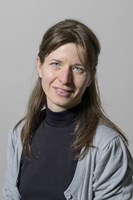
Dr Andrea Vityi. Expertise in agroforestry research.
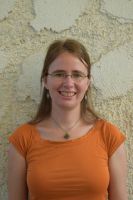
Ms Anna Varga is an Assistant Research Fellow at the Centre for Ecological Research in the Hungarian Academy of Sciences. Her expertise is in silvopastoral systems and she is pursuing a PhD on “Nature conservation, landscape history and traditional ecological knowledge of the wood pastures in Hungary”.
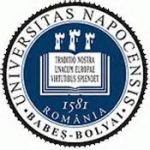
Babes Balyai University has the longest academic history of any university in Romania. It is situated in Cluj Napoca near the hills, mountains and plains of Transylvania in North West Romania. The Department of Ecology and Taxonomy is within the Faculty of Biology and Geology. The Department has expertise in the areas of terrestrial and aquatic ecology, with an increasing focus on land use change and interdisciplinary landscape ecology. Specific areas of interest include the dispersal of species within spatially and temporally heterogeneous landscapes. It has experience in previous FP6 projects such as ALARM (Assessing Large-scale risks for Biodiversity using Tested Methods) and GLORIA. Within this project, Babes Bolyai will work with local farmer groups and NGOs (such as ADEPT) to promote the development of appropriate agroforestry systems. The team has expertise in biodiversity conservation, ecology and physiology, environmental monitoring, impact assessment and rural development.
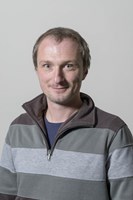
Tibor Hartel, PhD in ecology

Veneto Agricoltura is the regional agency for agriculture, forestry and agri-food sectors since 1999. The Division of Research and Agroforestry management comprises more than 40 people (researchers and technicians), plus specialized workers across four experimental farms and four centres (horticulture-flowers, grape-wine, fruits plants and forestry trees nursery). Main projects and experimental activities include most aspects of agricultural and forestry sciences, with special attention to low input and sustainable production system (including organic), biodiversity conservation, alternative energy production and use at farm lever and forestry management in the plane and mountain areas. A participatory approach to projects activities is frequently used including local farmers and associations and SME. On field visits, training courses as well workshops and technical leaflets are used to disseminate results between stakeholders at regional and national level.
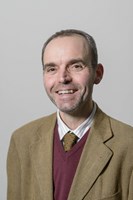
Valerio Bondesan, animal scientist studying interaction between production system and products quality (meat and traditional processed products in pig, beef, milk, eggs), with focus on organic free range pigs. He has coordinated projects for biodiversity conservation of local breeds (sheep, cow and poultry) and assessment quality traits of their products.

Created in 2000, AGROOF is a worker cooperative, specialized in agroforestry development. AGROOF develops activities linking research to the field: research development, training, implementation of projects, audiovisual productions. AGROOF was a partner of the SAFE Project. AGROOF contributes to national and international research on agro-ecology on very accurate subjects such as the quantification of carbon storage by the root system, variation of nutriments in the presence of trees, trees vs erosion, trees and auxiliaries. On a very local level, AGROOF also helps local public structures in their territorial management and farmer in developing their agroforestry projects.
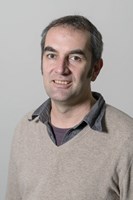
Fabien Liagre: leads projects management activity;
Camille Béral: Engineer specialized in agroforestry, has in charge the research activity;
Daniele Ori is project manager and training courses manager for student and end-users.
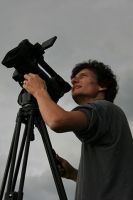
Nicolas Girardin: is responsible of the communication and audiovisual;
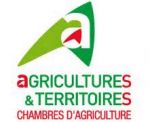
The Assemblée Permanente des Chambres d'Agriculture (APCA) are the French chambers of agriculture. They have been implied in agroforestry development for more than 20 years. APCA coordinates a network of advisors that work on forest, trees and wood, and a network with Chambers from mountain areas that work on pastoralism.
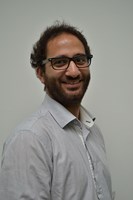
Yousri Hannachi : in charge of agroforestry, forest & wood for French Chambers of Agriculture.

The Association Française d’AgroForesterie (AFAF) is the French association for Agroforestry. It was created in 2007 and it works with farmers in order to enhance agroforestry systems.
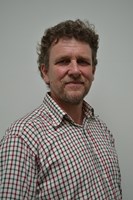
André Sieffert is Administrator of AFAF, biologist and agronomist specialized in agroforestry, with 16 years experience in organic vegetable production. Today specialized in the design and implementation of systems associating fruit trees, vegetables and wild trees ("vegetable-orchards") with scientists and farmers in France.
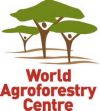
The World Agroforestry Centre (ICRAF) is part of the alliance of the CGIAR centres. The Centre is guided by the broad development challenges pursued by the CGIAR. These include poverty alleviation, enhanced food security and health, improved productivity with lower environmental and social costs, and resilience in the face of climate change and other external shocks. The Centre's mission is to generate science-based knowledge about the diverse roles that trees play in agricultural landscapes, and use its research to advance policies and practices that benefit the poor and the environment. The Centre has generated important knowledge and technology in the form of international public goods thus enhancing the evolution of policy and institutional innovations. It has done this by expanding knowledge on the multifunctional roles of tree-based systems and addressing challenges and opportunities across ecosystems to leverage benefits for smallholders. It is uniquely positioned to address global challenges.
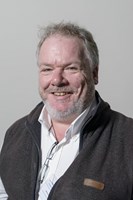
Dr Fergus Sinclair is ICRAF’s Science Domain Leader on Agroforestry Systems. He has >70 international publications on agroforestry and >2000 cites and an h-index of >25 (google scholar). He has worked for over 25 years on agroforestry research and development in Europe, Africa, Asia and Latin America. He holds positions at Bangor University in the UK and at CATIE in Costa Rica. His expertise includes classification of agroforestry practices, local knowledge and modelling agroforestry systems from field to landscape scales. His most recent research revolves around development of negotiation support tools to manage synergies and trade-offs amongst impacts of farm trees on multiple ecosystem services
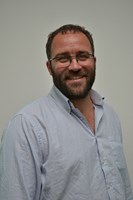
Dr Tim Pagella has over ten experience of agroforestry research both within and outside of Europe. His research interests include the development of landscape negotiation tools, the use of local knowledge in Agroforestry research and the use of trees for catchment management
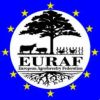
The European Agroforestry Federation (EURAF) aims at promoting the use of trees on farms (silvoarable and silvopastoral) throughout Europe. EURAF is a non-governmental organisation that unites eight national agroforestry associations throughout Europe and more than 250 individual members from 18 different European countries. EURAF was founded on December 16th, 2011 at the first European Agroforestry Meeting in Paris, and has been focusing on policy work in 2012, promoting agroforestry uptake in the new Common Agricultural Policy, and informing European decision makers (European Commission, European Parliament, National Governments). In October 2012 EURAF organised the first European Agroforestry Conference in Brussels
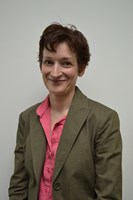
Anja completed an Engineering Degree in Horticulture in Germany and a Master’s Degree in Agroforestry in Great Britain. Currently, she is working as EURAF’s Project Manager.
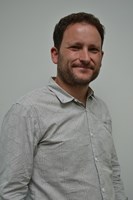
Jabier has a university background in Environmental and Forest Engineering, and specialised in agroforestry during his PhD, when he studied how livestock grazing in fuelbreaks could help reduce the risk of wildfires in Mediterranean ecosystems. Currently, as EURAF policy officer, Jabier is in charge of analysing European and national policies affecting agroforestry and will thus contribute to Agforward's policy work (WP8).
External Expert Advisory Panel
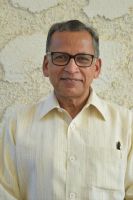
Professor PK Nair
Professor PK Nair is a Distinguished Professor in Agroforestry and International Forestry at the University of Florida in the USA. He organised the First World Congress in Agroforestry in Florida in 2004.
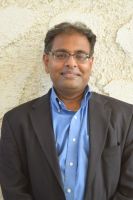
Professor Shibu Jose
Professor Shibu Jose is Director of the School of Natural Resources at the University of Missouri in the USA.
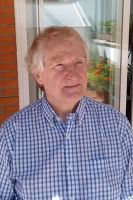
Mr Gerry Lawson is a Research Fellow at the UK Centre for Ecology and Hydrology. He has agroforestry experience from projects in Europe, Africa and Central America, and nowadays focuses on forest, agricultural and climate policy. He led the policy workpackage of the Silvoarable Agroforestry for Europe (SAFE) Project and is Vice President of the European Agroforestry Federation.